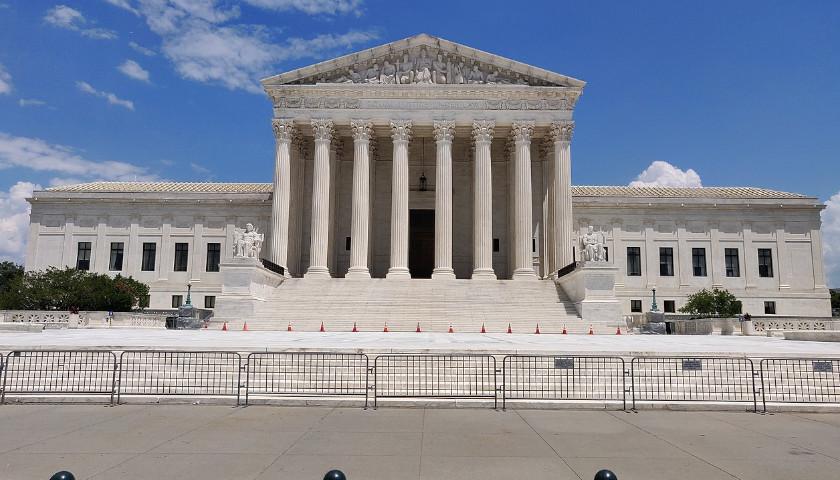by Jason Cohen
The Supreme Court on Friday took up Missouri v. Biden, the free speech case challenging the Biden administration’s efforts to censor content on social media, while issuing a pause on a preliminary injunction granted by a lower court.
Republican attorneys general from Missouri and Louisiana sued the Biden administration over its communications with social media companies related to the suppression of online speech, arguing it violated the First Amendment. District of Louisiana Judge Terry A. Doughty issued an injunction in July blocking certain parts of President Joe Biden’s administration from colluding with social media platforms to censor content online. The Supreme Court paused the injunction, but agreed to take up the case, according to the court order.
🚨BREAKING: The Supreme Court has granted cert in the landmark free speech case in the digital era, Missouri v. Biden.
It will take up questions regarding standing; whether the feds — in coercing and colluding with the social media companies to suppress Wrongthink — violated… pic.twitter.com/T4D950R5N5
— Benjamin Weingarten (@bhweingarten) October 20, 2023
 “A majority of the Court, without undertaking a full review of the record and without dissenting any explanation, suspends the effect of that injunction until the Court completes its review of this case, an event that may not occur until late in the spring of next year,” Justice Samuel Alito wrote in his opinion, dissenting from the decision to stay the injunction. “Government censorship of private speech is antithetical to our democratic form of government, and therefore today’s decision is highly disturbing.”
“A majority of the Court, without undertaking a full review of the record and without dissenting any explanation, suspends the effect of that injunction until the Court completes its review of this case, an event that may not occur until late in the spring of next year,” Justice Samuel Alito wrote in his opinion, dissenting from the decision to stay the injunction. “Government censorship of private speech is antithetical to our democratic form of government, and therefore today’s decision is highly disturbing.”
Government officials likely breached the First Amendment by suppressing protected speech, the district court found. The lower court’s injunction asserts that government actors are barred from “collaborating, coordinating, partnering, switchboarding, and/or jointly working with” research groups and projects that champion censorship.
The Biden administration had asked the Supreme Court to freeze the injunction after an appeals court partially affirmed it in September. It may have opened itself up to a more expansive ruling on its social media censorship collusion.
– – –
Jason Cohen is a reporter at Daily Caller News Foundation.




